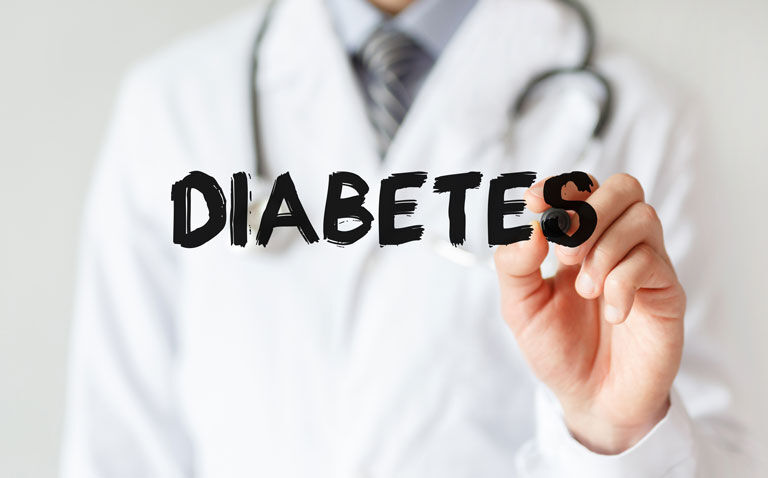The risk of diabetes after infection with COVID-19 remains high for at least three months before declining to background levels
The diabetes risk from infection with COVID-19 stays elevated for three months after the acute infection before declining according to the findings of a study by researchers based at King’s College, London, UK.
Emerging evidence suggests that infection with COVID-19 is associated with many adverse sequelae as shown by increased incident use of several therapeutic agents such as pain medications, antidepressants, anxiolytics and oral hypoglycaemic agents, highlighting an increased diabetes risk. Moreover, other work has suggested that COVID-19 is a risk factor for acute myocardial infarction and ischaemic stroke in the first 2 weeks following an acute infection.
While many of those infected with COVID-19 make a full recover, it is also recognised that approximately 10%-20% of people experience a variety of mid and long-term effects which are collectively known as post COVID-19 condition or long COVID. Whether the cardiometabolic risks of COVID-19 remain high over the longer term is uncertain.
A further complication when trying to assess this level of increased risk, is that the restrictions imposed by the various COVID-19 lockdowns, may have led to changes with an individual’s diet and physical activity which may also have impacted on cardiometabolic risk.
Therefore, when trying to better understand whether infection with COVID-19 increases diabetes risk, it is necessary to compare the incidence of these diseases among those who were infected with matched, non-infected controls.
For the present study, the UK researchers conducted a population-based, matched cohort study using the CPRD Aurum, a large and comprehensive medical records database. They focused on both diabetes and cardiovascular disease (CVD) and identified a COVID-19 cohort and which was matched (based on age, gender and practice) to individuals with no recorded diagnosis of infection with the virus, although those with pre-existing diabetes or cardiovascular disease were excluded.
For the purposes of analysis, the researchers set the index date as when the first code for COVID-19 infection was recorded in the notes and examined the incidence of diabetes and CVD over four periods of time: 4 weeks prior to the index date; 4 weeks after this date; 5 to 12 weeks later and finally, from weeks 13 to 52 after the acute infection.
The study outcomes were the first recorded diagnoses of diabetes and CVD. The results were adjusted for several covariates known to be associated with diabetes and CVD e.g., smoking status, body mass index and blood pressure.
Diabetes risk and COVID-19
A total of 431,193 individuals with a median age of 35 years (44%) males were matched to an equal number of control patients.
In the first four weeks after infection with COVID-19, the diabetes risk increased by 1.8 times (incidence rate ratio, IRR = 1.81, 95% CI 1.51 – 2.19, p < 0.001). However, this risk remained elevated between 5 and 12 weeks after the index date (IRR = 1.27, 95% CI 1.11 – 1.46, p < 0.001).
However, between weeks 13 and 52, the rate, while still slightly higher, became non-significant (IRR = 1.07, 95% CI 0.99 – 1.16, p = 0.07). There were also significant elevations for CVD up to 12 weeks which again became non-significant after 13 weeks.
The authors concluded that an important finding of their study was how the diabetes risk remained higher for at least 3 months after an acute COVID-19 infection. They suggested that patients recovering from the virus should consider measures to reduce their diabetes risk through diet, weight management and physical activity levels.
Citation
Rezel-Potss E et al. Cardiometabolic outcomes up to 12 months after COVID-19 infection. A matched cohort study in the UK PLoS Med 2022










